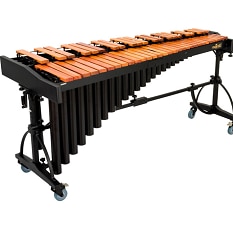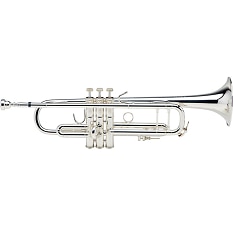As educators of music students, you're probably no stranger to fundraising. As dollars continue to be diverted away from school music activities, many band and orchestra programs have come to rely on fundraising to keep their programs in tune. The types of fundraising activities run the gamut: march-a-thons; car washes; golf tournaments; auctions; dinners; raffles; and selling all kinds of goods like candles, magazines, gift wrap and candy.
Indeed, these popular consumer items are as commonplace in band and orchestra rooms as drums, violins and sheet music – all to be sold in the name of music education. In fact, product fundraising programs help non-profit groups raise $1.7 billion each year, according to statistics from the Association of Fund-Raising Distributors and Suppliers (AFRDS).
If your music program needs money to pay for instruments, music equipment, travel or uniforms, you’re probably thinking about what fundraisers could work for you. Fortunately, school band and orchestra programs have the support of dedicated parents who are eager to see their students’ music program succeed.
"Parents will do almost anything to support school music groups because their contributions directly affect their children," according to Russ Colombo, a veteran fundraising professional in Houston, Texas, who's spent more than 30 years helping school band, chorus and orchestra programs raise money. Because parents know how the money will be spent, and because it's a more intimate group, it's sometimes easier to generate support for a band or orchestra fund-raiser than a school-wide fundraiser, according to Colombo.
Setting Goals, Proper Planning & Choosing the Right Program
Working with your booster club to identify specific needs and set financial goals are vital first steps in conducting a successful fundraising campaign. With a clear understanding of how much money is needed and how it will be spent, volunteers will be motivated and focused. Clearly stated financial goals also will give the fundraising program a benchmark for success.
"When it comes to running a music program, there are a lot of expenses that have to be dealt with," says Colombo. "Music teachers also have to be accountants and financial planners."
Kurt Moede, a band director at a middle school in Pflugerville, Texas, agrees. Good planning is key to his group's success. Each year, his students sell consumer items from a brochure during the second week of school. The money helps pay for a field trip the following spring to a music festival in Dallas, along with a day at Six Flags Over Texas. Moede begins about six months out. In the spring, he meets with his professional fundraising company to discuss the upcoming fall fundraiser. Moede takes the lead in the meeting, and discusses what worked and what didn't work from the previous fall's program. "We do a lot of problem solving during our spring meeting," he says. "I'll tell the sales rep if I had any issues or problems with last fall's program. I also want to find out what other, similar groups around the state are doing and determine if it's time to change or adjust our methods."
 Planning for a fundraiser doesn't stop once next year's program has been decided, according to Moede. The timing of the fundraiser is just as critical, and Moede says his group's success is due in part to its "early bird gets the worm" mentality. "Holding our group's fundraiser during the second week is an advantage because most students and parents don't have a lot of outside commitments that time of year," Moede comments. "We only do one fundraiser per year, and we get it out of the way early before other groups start their own fundraising programs."
Planning for a fundraiser doesn't stop once next year's program has been decided, according to Moede. The timing of the fundraiser is just as critical, and Moede says his group's success is due in part to its "early bird gets the worm" mentality. "Holding our group's fundraiser during the second week is an advantage because most students and parents don't have a lot of outside commitments that time of year," Moede comments. "We only do one fundraiser per year, and we get it out of the way early before other groups start their own fundraising programs."
Cindy Bullock, a band director at a middle school in Odessa, Texas, says she is also very involved in the fundraising planning process, and helps the booster club identify the best program, and the best professionals to work with. "I've had fundraising companies promise me the moon and not deliver," she notes. "I encourage booster clubs to work with companies that are willing to work with us, and tailor the program to meet our needs."
Fundraising professionals recommend you get the answers to these five questions when trying to decide which company to partner with for your group's next fundraiser.
1. How long has the company been in the product fundraising business?
2. What value-added services does the company offer, and how much do these services cost (e.g., assistance to volunteers, communicating with parents, custom packing, et cetera)?
3. How will the company tailor its program to fit your organization's needs, and more importantly, how will it meet your financial goals?
4. Does the company understand and comply with state sales and use tax laws that impact your program?
5. How responsive will the company be should problems arise (e.g., damaged products, back orders)?
Check out this Fundraising Report Card to help you evaluate fundraising companies.
Promotion Equals Success
P.T. Barnum once said, "Without promotion, something terrible happens — nothing!" Once your fundraising program is launched, it's critical to never miss an opportunity to promote. Three out of four parents who supported a fundraising program last year were told how the money would be spent, according to a recent consumer survey commissioned by AFRDS. Furthermore, nearly one in three parents reported that knowing the fundraiser's goal influenced them to purchase more products.
"Timely, effective communication with parents is key to success," says Colombo. It's important to communicate the goals of your fundraiser before and during the sale because it's difficult to generate excitement at the last minute, according to Colombo. "Parents want to know in advance how much money needs to be raised and how long they have to raise it," he remarks.
Moede says even though his supporters know when the annual fundraiser will be held and for what purpose, he still sends home a letter to parents the day before the program begins that contains details about the fundraising goal. In addition, Moede says he is required to send a letter to his principal that provides a timeline for the band's fundraising program. The information is then added to the school's "fundraising calendar" which prevents groups from competing against one another for fundraising support. 
There are several efficient and effective ways to promote your next fundraiser
- Every chance you get, communicate the specific goal of your group's fundraiser. For example, don't say, "We're halfway to $3,000." Instead say, "We're halfway to 60 new uniforms for the homecoming game."
- Provide parents with a complete fundraising schedule at the beginning of the school year. Include launch dates, deadlines for turning in orders/money, and if possible, an estimated delivery time for products.
- Use websites, social media, newsletters, outdoor signage (i.e., the school marquee) and local television channels to communicate important information to parents and supporters and updates on the fundraising program — and of course, always be sure to mention why you're raising the money.
- Finally, find a way to say "thank you" to all supporters. Send home a thank you letter that lists results and recognizes any extra efforts.
Don’t forget the reason for your fundraising
The money raised from a successful fundraiser can help keep your school's music program in tune. When it comes to fundraising, it's important to keep your eye on the ball. Setting clear financial goals helps keep your volunteers motivated, and provides a benchmark for success for your program. Planning ahead is also important because it helps you work out any potential problems with your program ahead of time. When deciding on a professional to work with, be sure to find out how each company will tailor its program to fit your organization's needs and, most importantly, find out how it will work to meet your group's financial goals. These days, fundraising of all types is pervasive, so making your group's fundraiser stands out is vital. Get the attention of your supporters and potential supporters by promoting the reasons behind the fundraiser.
Try crowdsourcing!
Another great option to complement traditional fundraising ideas is crowdsourcing. DonorsChoose.org is a crowdfunding website that exists exclusively to help public school educators get funding for projects, including ones focused on music and the arts. Simply visit DonorsChoose.org and follow their simple instructions to start a project. You’ll want to have a plan in place to promote your project among your network and community, to increase your odds of getting fully funded and receiving your requested items. If you need some guidance on this, read this article to learn more about getting funding through crowdsourcing.
Other fundraising ideas
If you’re looking for even more fundraising ideas and tips, we have a library of fundraising articles that may help. You can also reach out to our school music experts at 800.346.4448 to maximize your music educator discounts, which make your dollars go further. We'll provide a quote with our best possible pricing.

